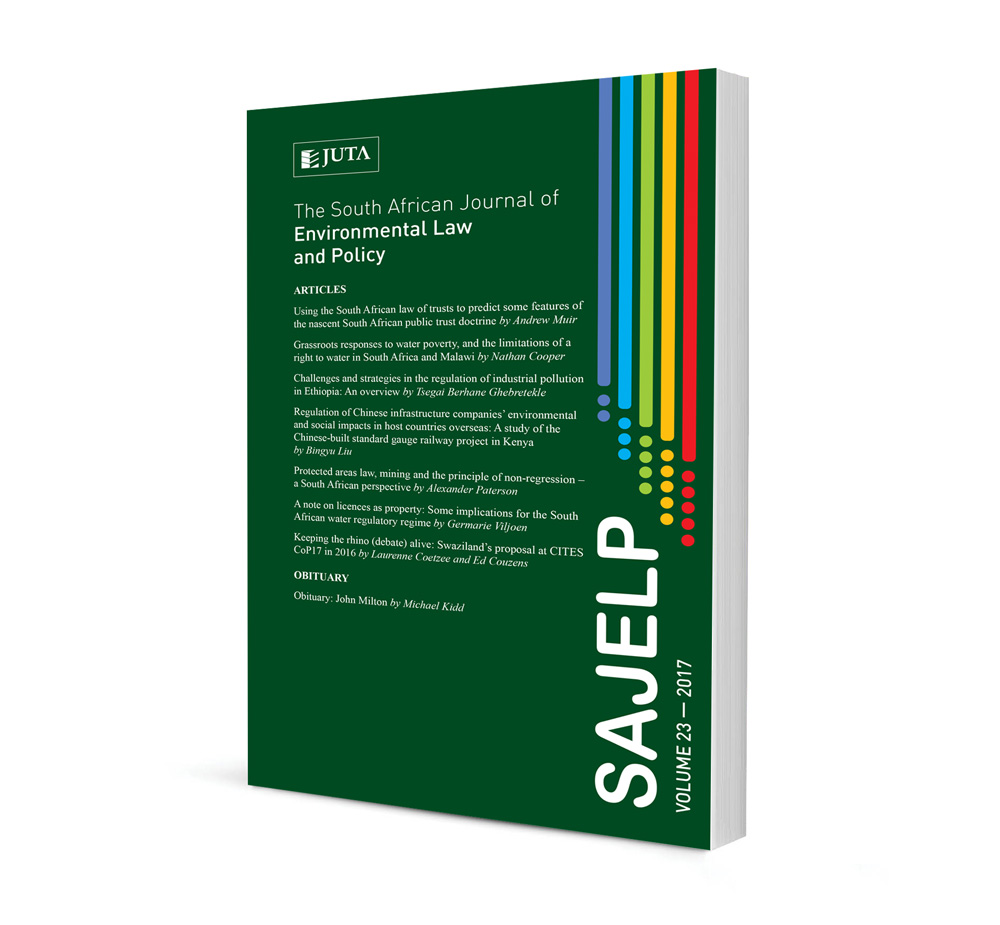
Municipal flood management in South Africa: A critical reading of recent case law
Authors Angela van der Berg
ISSN: 2616-8499
Affiliations:
Source: South African Journal of Environmental Law and Policy 2018, p. 87 – 118
Abstract
Natural disaster losses and people’s exposure to natural hazards are increasing all over the world. Human-induced climate change is likely to result in a continuing upward trend in the occurrence of natural disasters. Recent studies indicate that flooding is the most frequently occurring natural disaster. In the urban context, flooding impacts more people than any other type of natural disaster. In South Africa specifically, climate change has resulted in infrequent but heavy rains and flash floods punctuating the normally arid and semi-arid conditions. Between 2011 and 2018 the country experienced severe flash flooding in several of its urban areas. The occurrence and severity of flooding seems to have increased, resulting in damage to infrastructure, agriculture, property and human health and well-being. South Africa boasts an extensive legal framework for disaster management including laws and policy on other matters related to disaster risk reduction. Nevertheless, the extent to which government, specifically municipalities, are legally bound to prevent damage caused by natural disasters, especially in the event of flooding, remains unclear. The uncertainty seems to be exacerbated by a lack of clarity in legislation and by contrasting judicial views. In light of this uncertainty, this paper aims to critically determine the extent to which South African law places a duty on municipalities to prevent flood damage. The paper pays specific attention to South Africa’s disaster management legislation, read with the recently decided cases of Abbott v Overstrand Municipality (2016) and Propshaft Master (Pty) Ltd and Others v Ekurhuleni Metropolitan Municipality (2017).